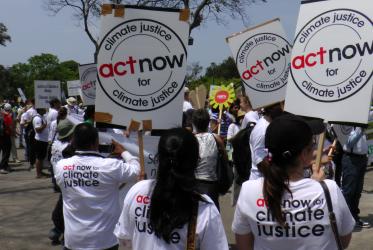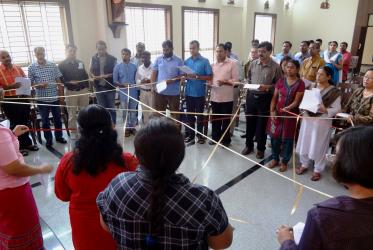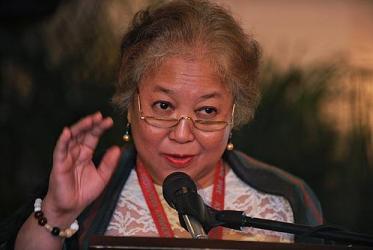Displaying 61 - 80 of 99
Churches' “prophetic voice” will be busy in 2015
18 June 2015
Migration transforms how churches do theology
08 September 2014
WCC joins a call to protect climate refugees
24 September 2013
Indian churches reflect on the WCC assembly theme
26 August 2013
WCC delivers climate change statement at COP 18
07 December 2012
Churches on the move amidst changing landscapes
26 March 2012
CWME invokes new understanding of mission and evangelism
22 March 2012
Durban outcome is not enough, says WCC
13 December 2011
Religious voices advocate for climate justice at Durban
28 November 2011
Before Durban climate talks, Brazilian ecumenists think about Rio+20
23 November 2011
Human trafficking: violence against humanity
22 May 2011
Towards an eco-theology
30 March 2011












